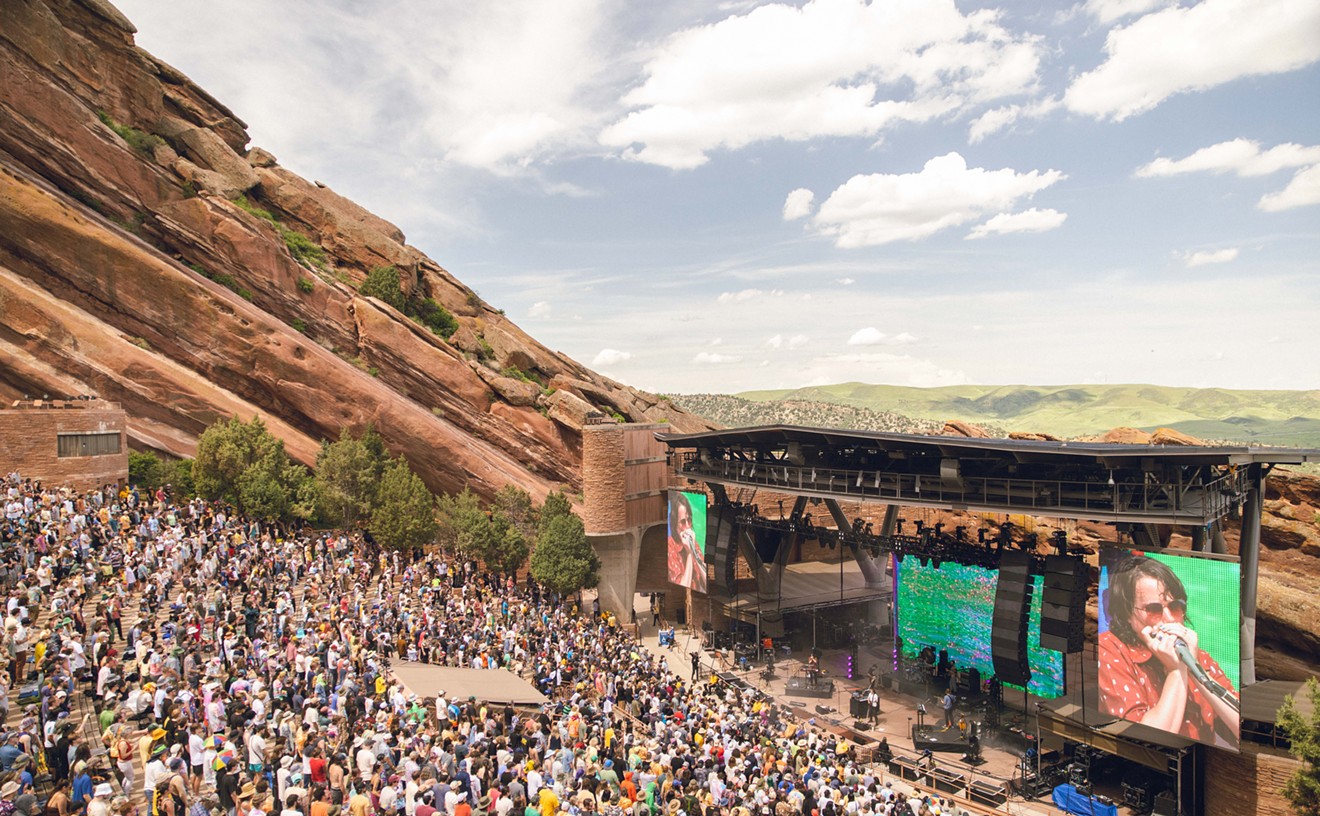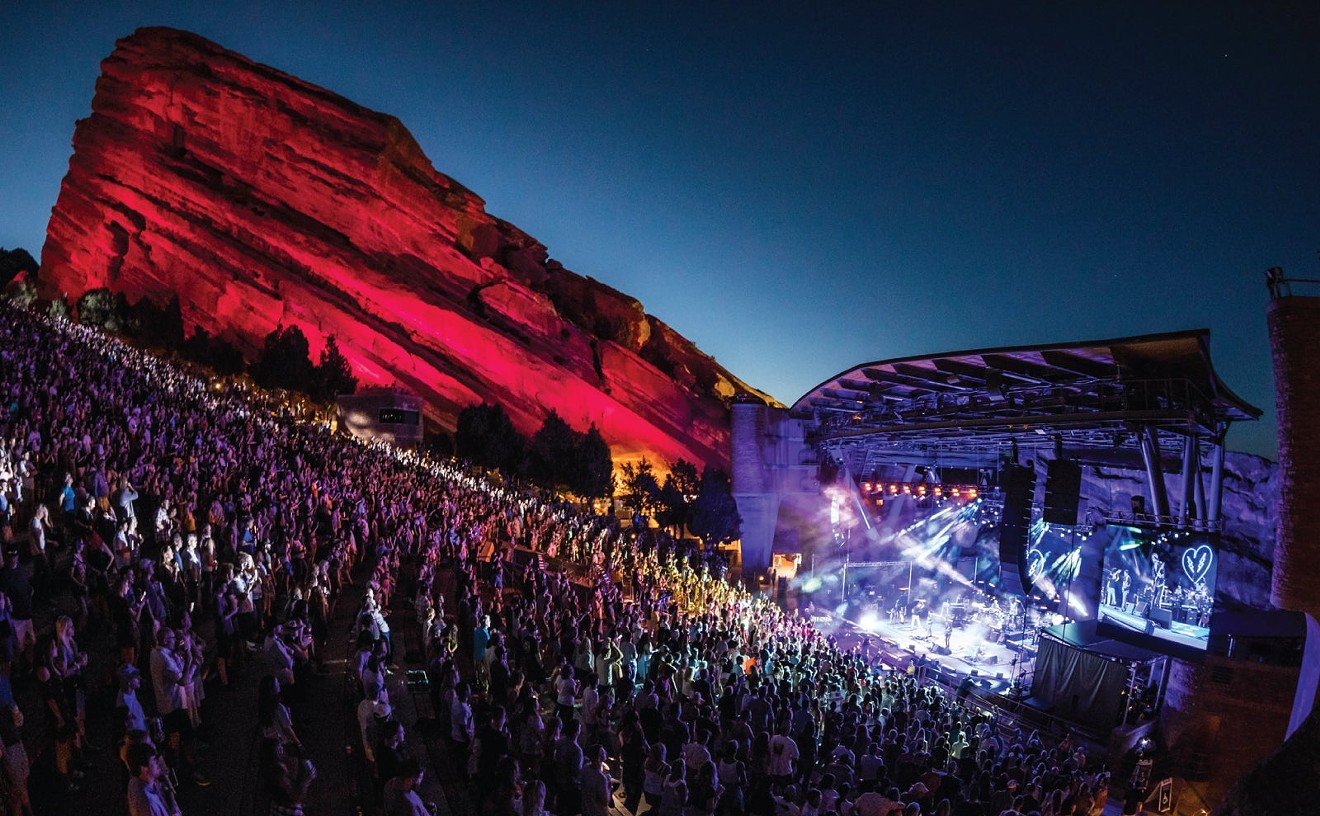On a peaceful Sunday afternoon in May, Isakov is kicking back in a plastic deck chair outside the Airstream trailer where he's been staying since he split with his girlfriend in February. The vintage mobile home is parked in the driveway of a quaint farm just off St. Vrain road in Niwot. As Nick Drake's Five Leaves Left plays quietly in the background, Isakov begins speaking in hushed tones that threaten to be drowned out by gentle wisps of an intermittent breeze and the squawking of chickens in a nearby coop. While such a pastoral scene is befitting of the rustic troubadour who's spent the better part of the past six years farming, Isakov has been a city slicker for most of his life.
He was born in the bustling metropolis of Johannesburg, South Africa, and came of age during the latter days of Apartheid. As the political situation worsened, his folks decided to immigrate with their three sons to the United States in the mid-'80s. "I was scared about moving," Isakov admits now. "All I had known about America was what I saw on The Wizard of Oz. I thought there was going to be tornados everywhere."
But just as there was no yellow brick road in America, neither were the streets paved with gold. Money was tight for the Isakovs, and the five started out sharing a one-bedroom apartment in the suburbs of Philadelphia. Eventually, as business picked up for Isakov's father, an electronic engineer, the family was able to move into a house.
By then, Isakov was a teenager. And though he wasn't a pronounced troublemaker, he wasn't exactly an angel, either. Like many kids his age, he didn't find school appealing, so he'd often ditch his classes. When he got caught and had to serve a week's detention, he put the time to good use, discovering an aptitude for horticulture. "I wasn't like a heavy pot smoker at the time," he notes, "but I did start growing some in the closet at my parents' house. A friend of mine had given me this indoor/outdoor cultivation book to read, which I covered in brown paper. And during that week, I read the entire book and learned all about plants and photosynthesis. Then I started growing pot, and I was like, 'This is awesome.' And then I started growing corn and tomatoes and stuff."
At seventeen, the budding greens-keeper dropped out of high school and traveled to the Middle East, a guitar slung over his shoulder. He spent time in Jerusalem, where he studied desert survival skills and Hebrew, and also traveled to Egypt and Dahab. Whether he was staying in youth hostels, camping out or bunking with friends, Isakov supplemented the money his father had given him with what he earned busking on the streets and beaches of the Mideast.
"It was good for me, but I'll never play music like that again," he declares. "I can't do that anymore. I think back then I thought that's what you were supposed to do to hone your playing. But then I realized that you have to be so loud to do that, and I'm so quiet when I play, it doesn't work for me. I totally look up to people who can go out on the street and project like that."
After a year abroad, Isakov returned to the States intent on earning his diploma, and enrolled in a special program at his former high school geared toward at-risk kids. There he met a teacher who took note of his interest in agriculture and urged him to look into Naropa University. A year after graduating from high school, Isakov was in Boulder taking standard college coursework, but also practicing tai chi, learning how to meditate and doing quite a bit of gardening. Although he'd long since outgrown his desire to toke up, his green thumb was as bright as ever. During his junior year, he spent a semester in Scotland working on a functioning farm. When he returned, he spent more time on Naropa's farm and eventually decided to pursue horticulture full-time.
"Gardening keeps me sane," he says.
So does songwriting. Isakov started playing guitar as a teenager, and it's been a constant in his life ever since. Unlike with gardening, though, he's deliberately eschewed any sort of formal musical training. "I was like, 'I'm never having a music lesson. I'm never fucking this up,'" he says. "Even in college, I just wanted to keep this as something for me."
To that end, Isakov puts a lot of time and effort into his songs, cultivating them until they meet with his approval. He's issued three discs — 2003's Rust Colored Stones, 2005's Songs for October and last year's Ghost Stories and Fair Weather EP — that he considers promo offerings, given the limited number of pressings and availability of each one. Included on these discs are variations on many of the songs that ultimately ended up on That Sea, the Gambler, his latest effort. Listening to the different recordings is like watching time-lapse photography of the growth process; you get the sense that Isakov was waiting for the perfect crop of songs. But he says the songwriting process isn't quite that calculated.
"Sometimes I feel like I have no control over it," he explains. "It's just something I have to do, like eating dinner. Like anyone who practices anything, it's something that makes being with yourself the most important thing to you. It's really hard to be alone. I go through that a lot — like I want to be in town and be around people. But then a few days will go by and I realize that I haven't written or played, because there's this resistance to being by yourself. And so for me, it's kind of what opens the door to really digging the time just to hang out by yourself."
Isakov's solitude has produced some exceptional music that makes being alone an enticing rather than a lonely prospect. These are the sort of songs that sound best when you're driving alone in your car, watching the landscape blur. And, in fact, many of the tunes started on the road. "The songs mostly come from driving — I drive a lot," Isakov says. "Or then I'll see something or overhear somebody say something in the grocery store. And then I'll just go back and sit down and play it out.
"I went to see Jolie Holland last year, and she nailed it," he continues. "She said, 'Pretty much how I write songs is I walk around and eat poetry and experiences, and then one day, I'll throw it all up into a song.' And that's totally how it is. Sometimes I don't know what the songs are about. And then maybe a month later, I'll be like, 'Oh, that's what that's about.' It's kind of a magical thing. I like to keep it like that."
That magic is enough to mesmerize listeners. But Isakov says he's just as awed by his fans as they are by him. "It's an amazing honor to be able to use up someone's time with something like this," he concludes. "There's so much art going on. So I feel that to take up somebody's time, even with a five-minute song — for someone who's really listening — I want to make the experience as respectful as I can for them."
By letting the music speak for itself.










